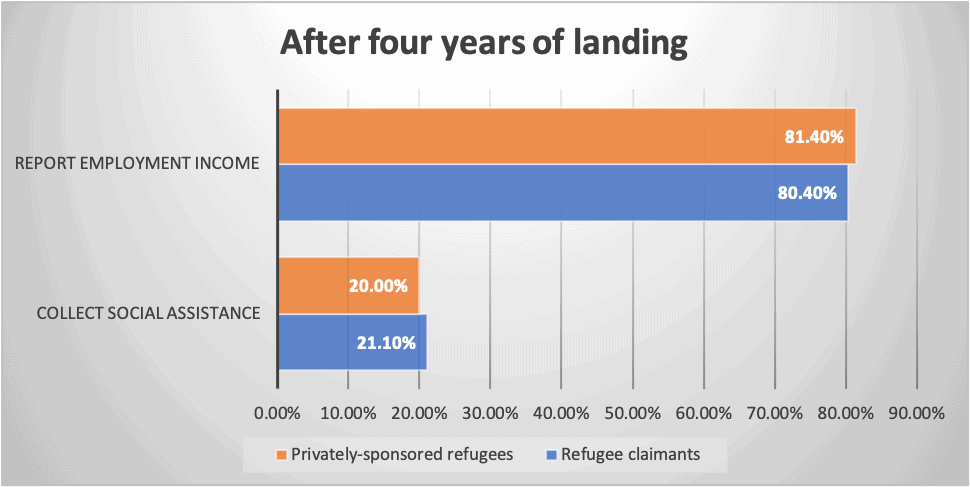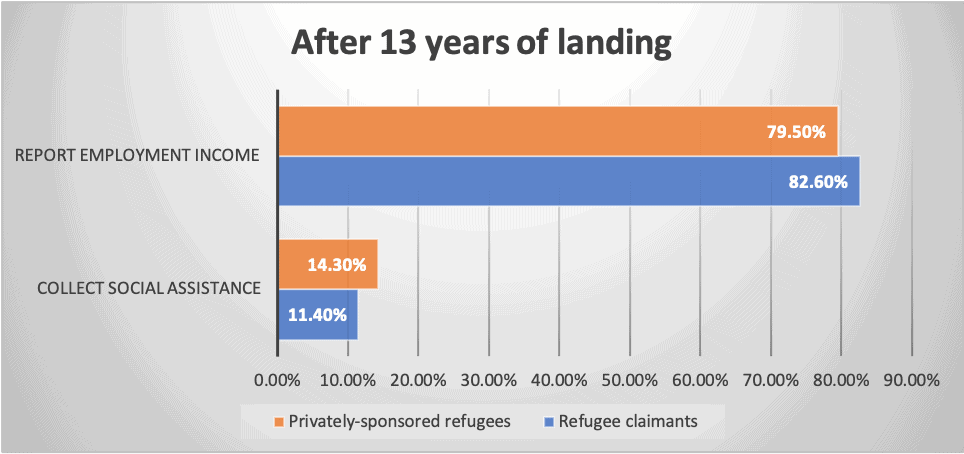Last Updated on November 13, 2020
Privately-sponsored refugees have faster labour market success in Canada than refugee claimants, but the gap is eroded over time, a new study shows.
While the privately-sponsored group are significantly more likely to find a job in the first year after their arrival, after four years the difference is negligible.
The findings were reported in a new Statistics Canada study, entitled ‘The Long-term Labour Market Integration of Refugee Claimants Who Became Permanent Residents in Canada’.
“The superior labour market position of PSRs shortly after landing compared with the other groups studied is not surprising, as they initially had a sponsor who volunteered to help them financially or otherwise for up to one year,” the study says.
“However, over time, the labour market situation of RC-PRs improved at a much faster rate, eventually surpassing that of PSRs.”
Read More
Canada Now The World Leader On Resettling Refugees
COVID-19: Pathway to Permanent Residence for Asylum Seekers in Canada’s Care Homes
Coronavirus: Canada To Begin Turning Away Irregular Border Crossers From U.S.
The study compared the labour market outcomes of refugee claimants who became permanent residents, privately-sponsored refugees and government-assisted refugees, focusing on the first two groups.
Using landing record and personal tax data, the study followed the candidates for up to 13 years after landing in 2003.
“Canada offers refugee protection to individuals who have a well-founded fear of persecution or face other personal dangers in their home country,” the study said.
“Although refugee claimants seek asylum in Canada for humanitarian reasons, their labour market outcomes play a crucial role in successful integration.”
After one year of landing, refugee claimants were far more likely to collect social assistance (66.5%) than privately-sponsored refugees (18.4%). Refugee claimants were also significantly less likely to report employment income (62%) than their privately-sponsored counterparts (81.6%).

However, after four years of landing, the figures changed, with an almost identical proportion of refugee claimants (21.1%) collecting assistance as privately-sponsored (21.0%). Similarly, 80.4 per cent of refugee claimants reported income, compared to 81.4 per cent in the privately-sponsored group.

Finally, after 13 years, just 11.4 per cent of refugee claimants collected social assistance, compared to 14.3 per cent of privately-sponsored refugees. Meanwhile, refugee claimants were slightly more likely (82.6%) to report employment income that the privately-sponsored group (79.5%).

The data shows that, despite being given a better start in Canada as a result of their private sponsorship, the benefits of that start for the privately-sponsored group is eroded over time.
The study said: “The findings indicate that, although RC-PRs were considerably more likely to collect social assistance and less likely to report employment income than PSRs one year after making a refugee claim, their outcomes improved at a significantly faster rate.”